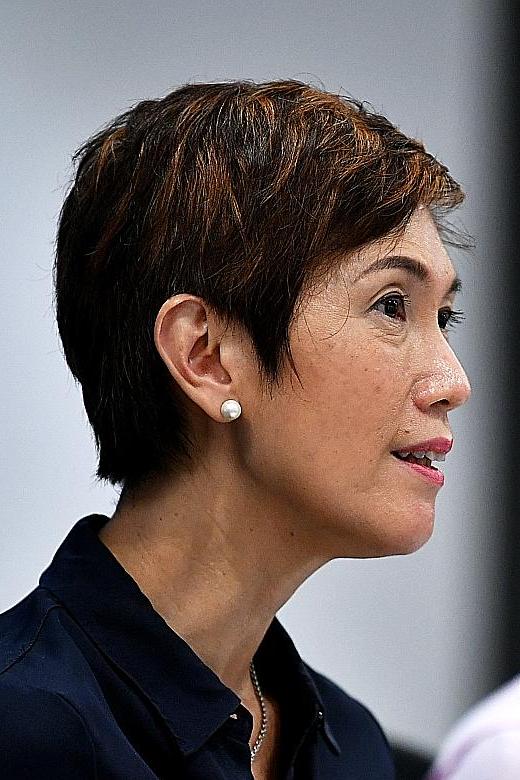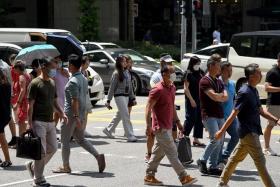Non-PMETs saw steeper increase in unemployment rates
MOM report says industries severely impacted by Covid-19 have higher number of such employees
Professionals, managers, executives and technicians (PMETs) were not hit as hard as non-PMETs by the Covid-19 pandemic, according to annual advance estimates for the resident labour force released yesterday.
Compared with PMETs, non-PMETs saw a steeper increase in unemployment rates and a greater reduction in working hours.
This is mainly because industries severely impacted by Covid-19 have a higher concentration of non-PMETs, and their jobs are less suitable for remote work, the Ministry of Manpower (MOM) said in its report. These industries include construction, retail trade, and food and beverage services.
But the unemployment rate of 6.4 per cent for non-PMETs this year remained below past recessionary peaks. This was also the case for PMETs, whose unemployment rate was 3.5 per cent.
During the global financial crisis in 2009, the jobless rates for non-PMETs peaked at 6.9 per cent, and 3.9 per cent for PMETs.
Yesterday, MOM said the increases in overall unemployment rates for both PMETs and non-PMETs were driven by shorter-term unemployment.
The increase in long-term unemployment rates - covering those out of work for more than 25 weeks - for both groups was smaller.
PMETs in their 40s experienced a larger increase in the long-term unemployment rate than those in other age groups.
Among non-PMETs, long-term unemployment rose for residents below 30 and in their 40s, but held steady for those aged 50 and older.
REDUCED HOURS
Covid-19 also led to reduced working hours for more non-PMETs (14 per cent) than for PMETs (5.7 per cent).
Sectors that saw the highest proportion of workers having their working hours reduced included accommodation (25.8 per cent), food and beverage services (21.1 per cent) and other community, social and personal services (15.1 per cent).
Manpower Minister Josephine Teo said during a visit to security agency Soverus yesterday that MOM will be working with other agencies to ensure economic activities continue to expand to make jobs available to job seekers.
But these jobs will likely require displaced workers to pick up new skills, she added.
Mrs Teo said MOM will continuously refine and enhance existing schemes, such as the SGUnited traineeship programmes and professional conversion programmes for mid- career individuals, to help job seekers pick up the skills needed.
She said MOM and its tripartite partners are also studying how to increase wages of low-income workers, and the workgroup will release its recommendations in the near future.
Get The New Paper on your phone with the free TNP app. Download from the Apple App Store or Google Play Store now



